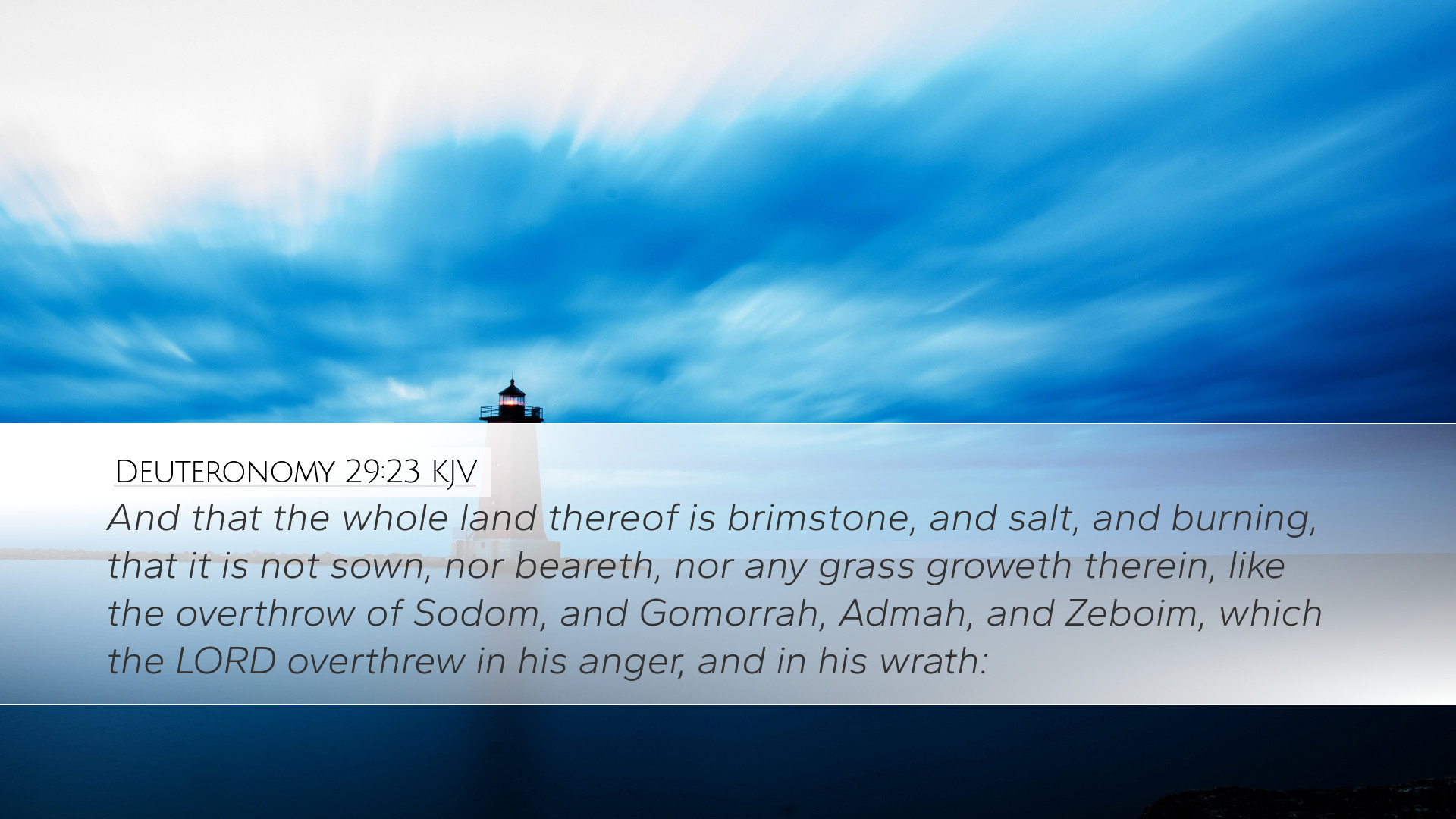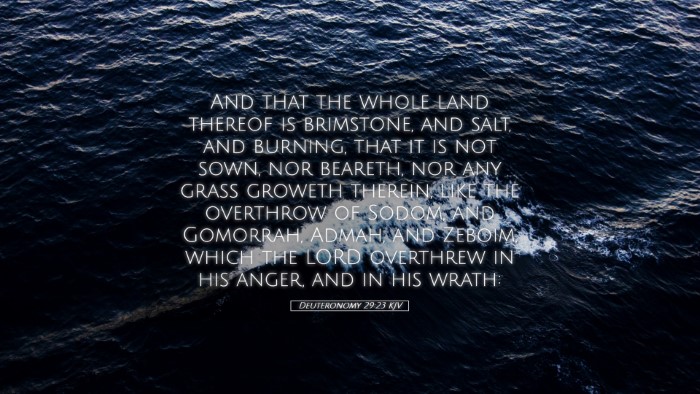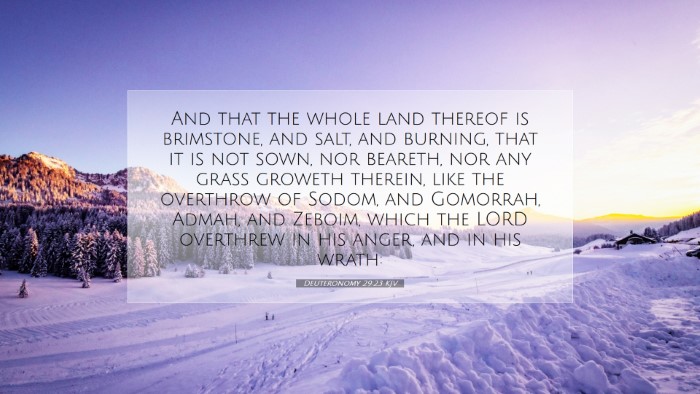Commentary on Deuteronomy 29:23
Verse: "And that the whole land thereof is brimstone, and salt, and burning, that it is not sown, nor beareth, nor any grass groweth therein, like the overthrow of Sodom and Gomorrah, Admah, and Zeboim, which the Lord overthrew in his anger, and in his wrath:" (Deuteronomy 29:23)
Introduction
The verse under consideration, Deuteronomy 29:23, serves as a poignant reminder of God’s judgment and the solemnity of disobedience. It draws a vivid picture of desolation through its reference to the destruction of Sodom and Gomorrah, portraying not only the physical devastation but also the spiritual implications of turning away from the covenant with God. This commentary synthesizes insights from Matthew Henry, Albert Barnes, and Adam Clarke to provide a meaningful exploration of the text.
The Context of Deuteronomy 29
This chapter occurs towards the end of Moses' speeches to the Israelites on the plains of Moab, just before they enter the Promised Land. It is part of a larger covenant renewal ceremony. At this juncture, Moses highlights the blessings for obedience and the curses for disobedience. He forewarns the people of the consequences of turning away from God, explaining that the land that could have been fruitful would instead become desolate if they forsake their covenant.
Analysis of Key Phrases
"The whole land thereof is brimstone, and salt, and burning"
Moses uses vivid imagery to describe the land as a place of destruction. Brimstone represents a fiery devastation; it evokes images of hellish judgment. Salt signifies barrenness and is often a symbol of desolation, recalling the salt that Lot’s wife turned into when she disobeyed the Lord. In the eyes of commentators like Barnes and Henry, this imagery serves as a warning against unfaithfulness.
"That it is not sown, nor beareth, nor any grass groweth therein"
This description emphasizes total desolation. It contrasts the expected fertility of the Promised Land with the barren reality resulting from divine wrath. Adam Clarke elucidates that this contrast reflects not only physical barrenness but also spiritual famine—a life devoid of God’s blessings due to sin.
"Like the overthrow of Sodom and Gomorrah"
This powerful comparison underscores the severity of God’s judgment. Just as Sodom and Gomorrah were obliterated for their wickedness, so too would Israel face similar consequences for their unfaithfulness. According to Matthew Henry, the reference serves to instill the fear of God in the hearts of the Israelites, warning them of the dire repercussions of history when the covenant is broken.
Theological Implications
The theological message of this verse is multifaceted. It calls for a deep understanding of God's holiness, justice, and covenantal fidelity. The passage supports the idea that God’s justice is not arbitrary; rather, it responds to the moral choices of humanity. The destruction of the cities mentioned serves as an eternal lesson for every generation. Commentators elucidate that God is both just and merciful; however, His mercy does not negate justice. This is evidenced in the scriptural narrative that shows God’s patience before rendering judgment.
Applications for Today
For pastors, students, and theologians, this verse urges a reflection on the consequences of collective sin within communities. In the modern-day church, this could translate into serious reflection about societal norms that contradict biblical teachings. The desolation mentioned here serves as a warning—a call to repentance and a reminder of the necessity for faithfulness in maintaining a covenant relationship with God.
Individual Reflection
Each individual is also called to self-examine in light of this verse. Are there areas in one’s life that reflect spiritual barrenness? Are there habits or attitudes that mimic the rebellion of Sodom and Gomorrah? Such introspection is vital for maintaining a vibrant faith.
Community and Leaders’ Responsibility
Moreover, church leaders are tasked with teaching the full counsel of God, including the realities of divine judgment. While it is essential to preach grace and mercy, equally important is the need for a sincere acknowledgment of sin and its consequences.
Conclusion
In closing, Deuteronomy 29:23 encapsulates essential lessons on the nature of God and the seriousness of covenant obligations. The land described represents more than mere geography; it symbolizes the heart of Israel, their relationship with God, and the potential consequences of turning away from Him. As highlighted by various commentaries, understanding this passage enriches our appreciation of divine justice, calling us to a faithful and obedient life before our Creator.


